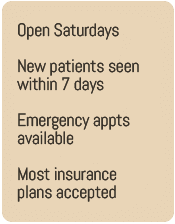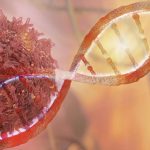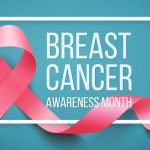The Link Between Alcohol and Cancer
When listing risk factors for cancer, most Americans don’t think to add alcoholic beverages to the list. Because of this, many people are unintentionally increasing their risk of developing cancer. This article will discuss some common questions people have about the link between alcohol and cancer.
Alcohol has been proven to increase cancer risk and cause cancer. According to the American Cancer Society, alcohol use causes six percent of cancer cases and four percent of cancer deaths in the United States.
While those numbers may not sound significant, they equate to about 75,000 new cancer cases from alcohol and almost 19,000 cancer deaths each year. To put that in perspective, the number of people developing cancer from drinking each year could fill the seventh-largest NFL stadium in the nation.
How does alcohol cause cancer?
Cancer occurs when changes or mutations happen to the DNA within a person’s cells. While scientists don’t always know exactly why someone develops cancer, exposure to certain risk factors for cancer can damage cells and cause mutations resulting in a cancer diagnosis.
Researchers believe alcohol increases the risk of cancer for a few reasons:
- It can damage DNA. When the body breaks down the alcohol (ethanol) in alcoholic beverages, it produces a toxic chemical that can destabilize DNA and potentially cause mutations. Breaking down the alcohol also creates free radicals that damage DNA and other cellular structures of the body.
- It hinders the body’s ability to break down and absorb vitamins that protect against cancer.
- Alcohol affects the body’s hormone levels and increases estrogen in the blood. Increased estrogen levels have been tied to a higher risk of breast cancer.
- During fermentation and production, carcinogenic components may be used or created, increasing the likelihood that those alcoholic beverages could cause cancer.
What kinds of cancer are linked to alcohol use?
When analyzing the tie between alcohol and cancer risk, clear patterns have been found. Alcohol consumption increases the risk of cancers in the areas of the body that it touches and through which it is metabolized.
Alcohol consumption increases the risk of:
- Oral cancer or cancers of the mouth
- Laryngeal cancer or cancer of the voice box
- Throat cancer
- Esophageal cancer
- Breast cancer
- Liver cancer
- Colorectal cancer
Researchers have found the risk of each of these cancers increases as the amount of alcohol and frequency of use increases.
This means people who drink a few times a week, even just one drink, have a higher risk of developing cancer than those who abstain. It also means that those who drink moderately or heavily have a higher cancer risk than those who are light drinkers.
What types of alcohol raise your risk for cancer?
Studies have found that the amount of alcohol consumed makes more of a difference than the type of alcoholic drink consumed.
Wine/Beer – Despite years of positive publicity in the 1970s and 80s, little evidence has been found linking wine drinking to reduced heart disease. This goes for beer as well.
Hard liquor – Some people think avoiding hard liquor is the answer to “healthier” drinking. Unfortunately, this is not the case. With alcohol-associated cancers, the frequency and amount of alcohol consumed are higher risk factors than the proof of the alcohol.
Do I need to give up drinking completely?
The more someone drinks over time, the more likely they are to develop alcohol-associated cancer. However, the converse is also true. Cutting back on your alcohol consumption and frequency will slowly lower your risk of developing alcohol-associated cancer.
Lowering alcohol consumption is a top preventable risk factor for cancer, along with avoiding tobacco use, reducing body weight and using sunscreen.
Researchers still do not completely understand how alcohol affects a person’s likelihood of developing cancer, but we encourage you to drink in moderation.
Notably, the link between alcohol and breast cancer has shown that even small amounts of alcohol can increase the risk of developing the disease. If you have a family history of breast cancer, cutting back on drinking could be an important step to lower your risk.
What to do if you develop cancer
If you or a loved one has received a cancer diagnosis, Personalized Hematology-Oncology can help. Our oncologists specialize in a broad range of therapies for cancer diagnoses. They also work diligently to remain at the forefront of cancer research and treatment.
Our physicians are board-certified physicians in oncology, hematology and internal medicine. Our internal medicine doctors can talk with you more about the links between alcohol and cancer. Please reach out to us with any questions or concerns.





